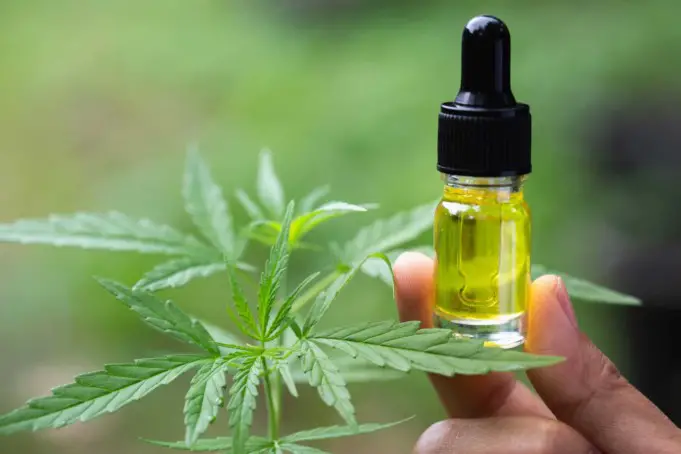Don’t confuse cannabidiol (CBD) oil with hemp oil. Although both organic substances promote healing properties, the differences in these products may deliver different effects.
Understanding these dissimilarities can also help reduce the risk of unwanted adverse effects.
Hemp Oil VS CBD Oil
Both CBD and hemp come from the same source, which is Cannabis sativa. But, many manufacturers and retailers don’t tell their consumers which part of the plant they used to create their products.
Take note that CBD comes from the leaves and flowers of the cannabis plant, whereas hemp tends to be in the seeds.
Aside from their names and sources, here are other aspects to consider for the “hemp oil VS CBD oil” topic:
1. Different Compositions
Extracting CBD from the Cannabis sativa plant may yield pure results. In other words, you’re not going to get anything but CBD from the flowers and leaves of the cannabis plant. Conversely, extracting hemp from the seeds can yield trace amounts of tetrahydrocannabinol (THC).
THC tends to be a significant component of several marijuana strains. This compound is also responsible for giving users mind-altering effects. Hence, consuming marijuana can get people “high” or “stoned” because of THC.
However, hemp should contain no more than 0.3% of THC. But, even if hemp oil has microscopic levels of THC, people who are sensitive to THC might still gain adverse effects from using hemp-infused products.
Check out the following video for more information about the compositions of CBD oil and hemp oil:
2. Production Methods
Another difference between CBD oil and hemp oil has to do with their methods of production. CBD oil manufacturers tend to use CO2 or supercritical fluid extraction to acquire the compound from the Cannabis sativa plant.
Conversely, hemp oil manufacturers tend to use cold-press extraction techniques.
These different extraction methods require various pieces of equipment to accomplish. Furthermore, the color of both products are different–CBD oil tends to have a clear to dark gold hue, whereas hemp typically has a dark to light green shade.
3. Price
At the time of writing, the market seems to favor the demand for CBD oil over hemp oil. Hence, the prices of CBD oil-infused products tend to be higher than items infused with hemp oil.
Furthermore, high-quality CBD oil with a high concentration of this particular naturally-occurring substance might have a more expensive price tag than other similar products. But, high-quality CBD oil tends to promote better health benefits than their low-quality counterparts.
Still, don’t judge a book by its cover. Yes, price can be a decent indication of a high-quality product, but it doesn’t mean that you’re going to purchase the best CBD oil on the market if you look at nothing but the cost.
4. Growing Conditions
Although CBD oil and hemp oil both come from Cannabis sativa plants, these chemical compounds tend to come from different plant variants.
CBD manufacturers tend to extract this natural substance in carefully-managed and controlled conditions. It’s because the cannabis plants need to be in environments with precise light exposures to create high-quality flowers and leaves.
Hemp oil, on the other hand, tends to come from Cannabis sativa plants grown outdoors. It’s because cannabis plant cultivators aim to maximize the size and yield of the plant to gain a significant amount of hemp seeds.
Also, growing specific strains of outdoor cannabis plants doesn’t need the same strict attention to humidity, lighting, and temperature that CBD requires.
5. Legality
As per federal law, any cannabis product with over 0.3% THC is deemed by the Drug Enforcement Administration (DEA) as a Schedule I drug. Hence, all 50 US states find it legal for consumers to use CBD oil, as long as the product contains less than 0.3% THC.
But, take note that different states still apply different local laws for the sale, use, and distribution of CBD oil.
For example, some regions don’t allow CBD to come from outside the state’s borders, which means people who wish to use CBD-infused products should find ways to search for these items within the area.
Conversely, industrial hemp oil is no longer a Schedule I controlled drug following the 2018 farm bill. At the time of writing, industrial hemp products are now an agricultural commodity, which prompted the US Food and Drug Administration (FDA) to redefine its laws regarding the sale, use, and distribution of this product.
Proper research is vital to know the local laws influencing CBD oil and hemp oil. Failure to comply with these local rules and regulations might face you with fines.
Conclusion
Several differences exist when looking at hemp oil and CBD oil. These dissimilarities are in different categories, such as compositions, production methods, growing conditions, price, and legality. Let this post be your guide to understand these differences for you to properly differentiate CBD-infused products from items with hemp.












